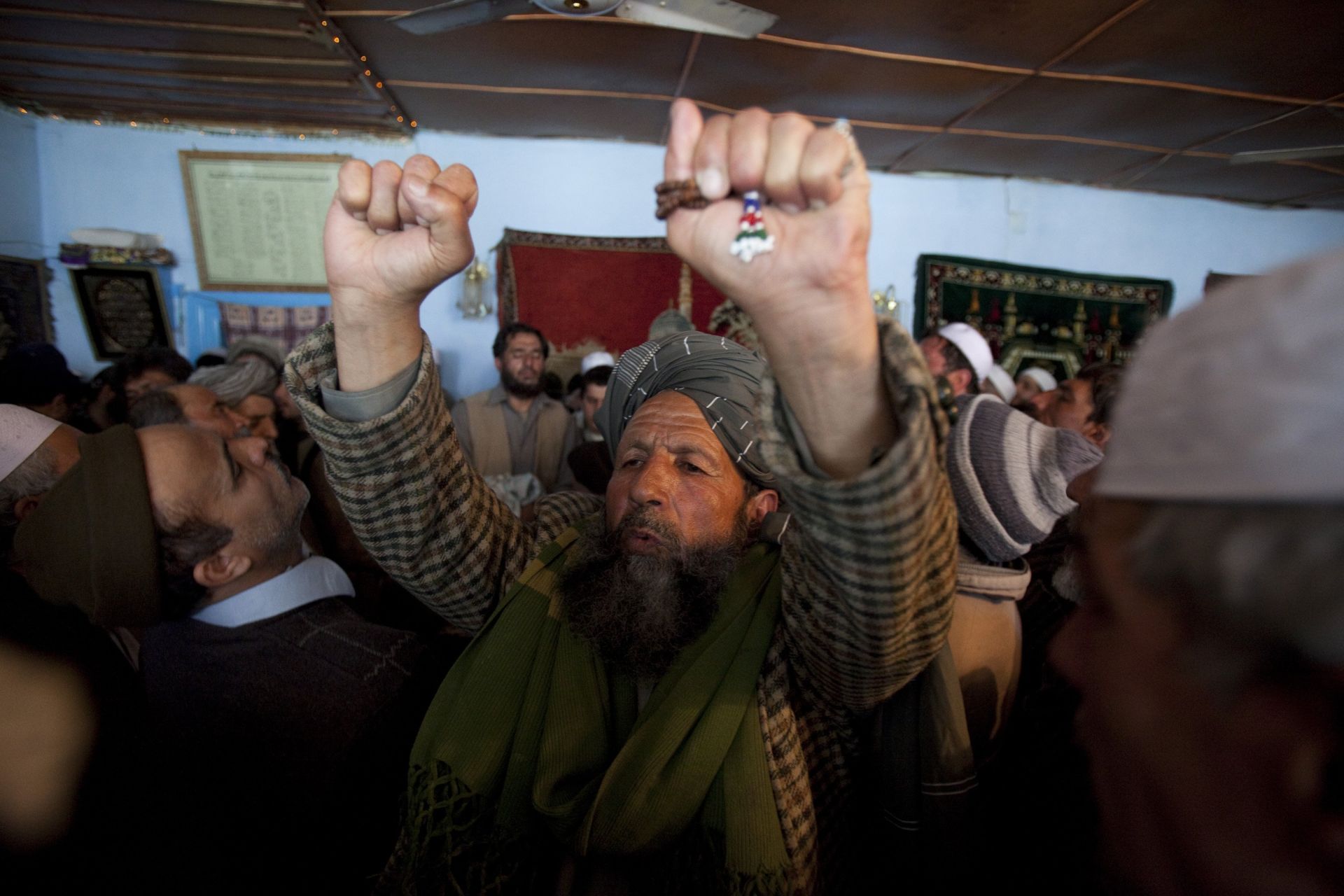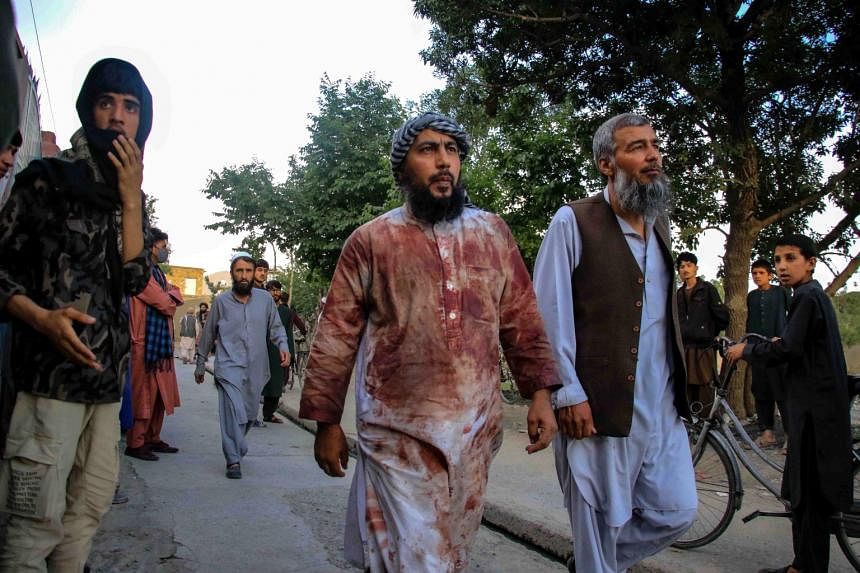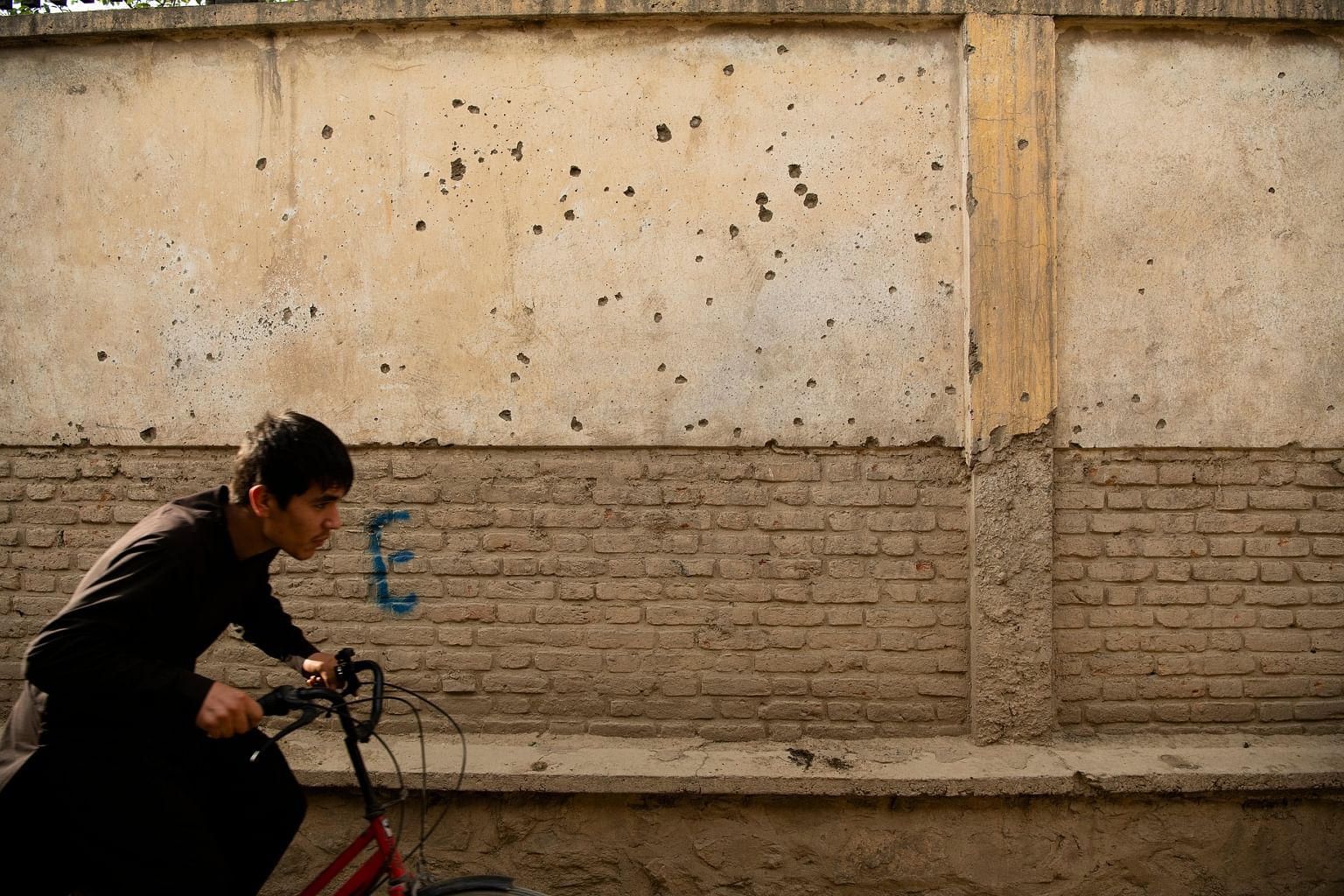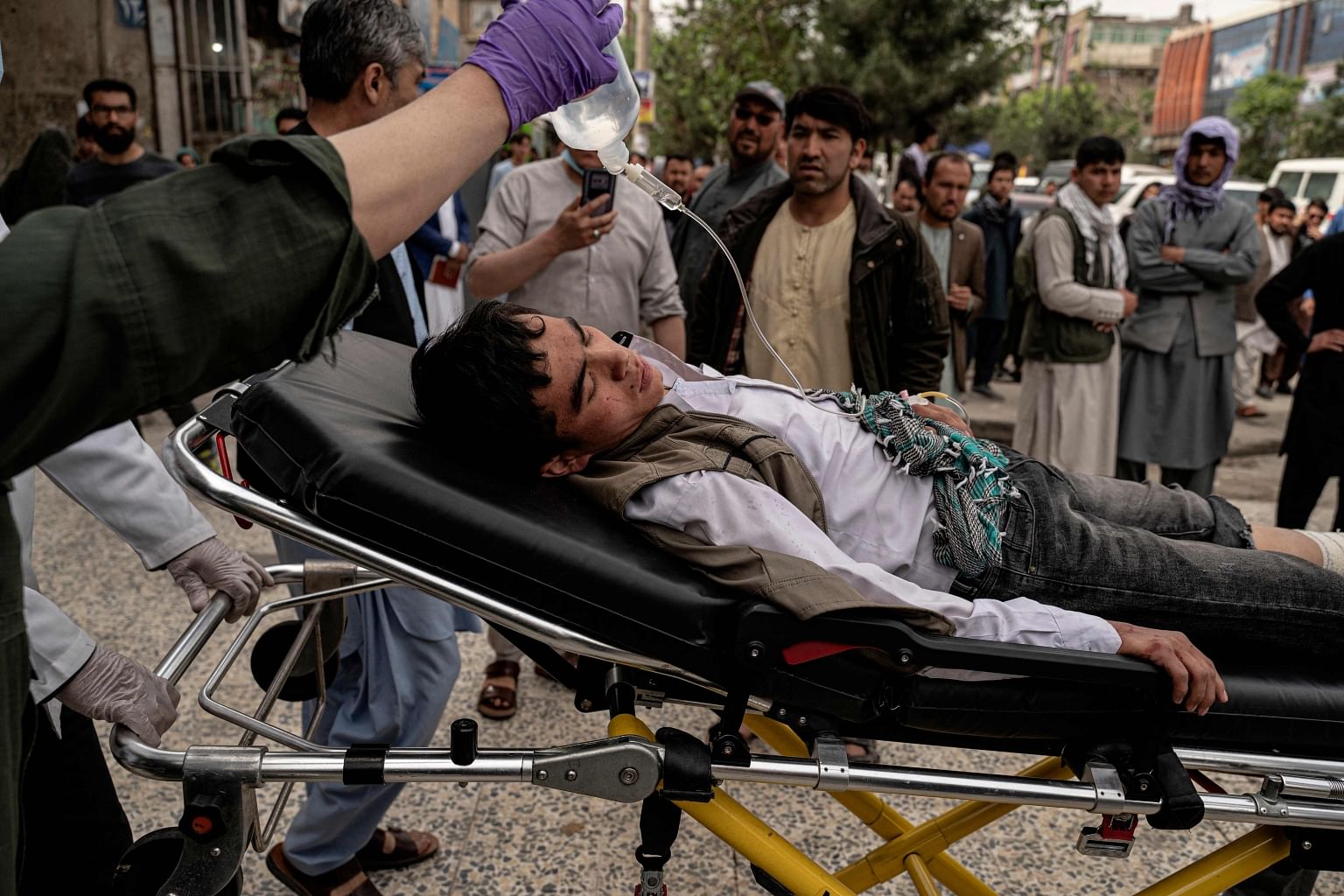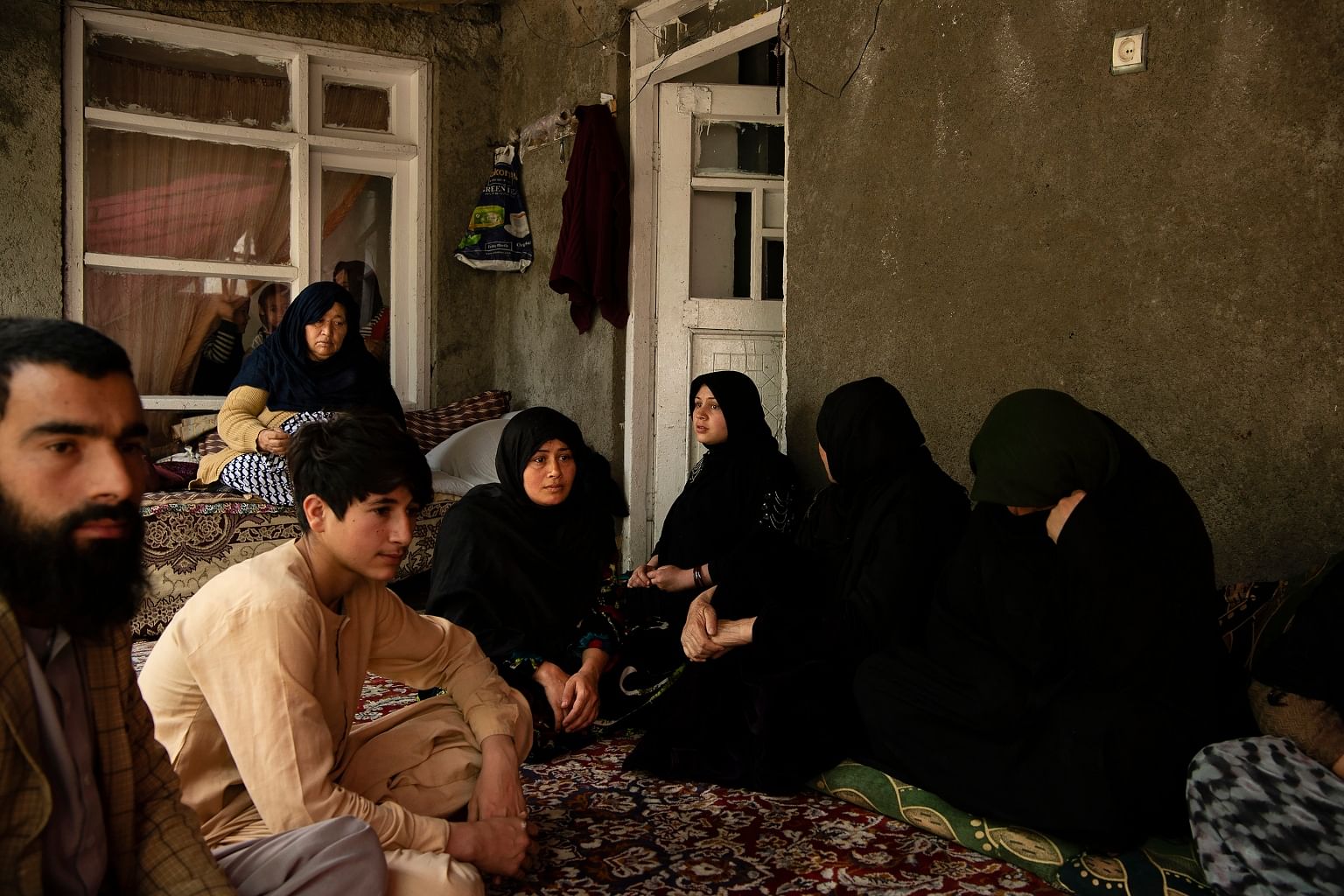
Salah El Din – Salah El Din El Ayoubi – Saladin and Richard the Lionheart
Jerusalem’s hard-fought liberation, now in process, is a recapitulation of the Christian Crusades of the 11th-13th centuries, this time, not by the knight on a white horse of legend, but through the long march of guerilla warfare by the much maligned Shia. This follows on the liberation of Iran from its Judeo-Christian yoke in 1979 and Iraq 25 years later, ironically by the US, forming the second Shia majority state. But it is the Shia minority of Lebanon that holds the keys to Jerusalem. Their 40% of the Lebanese population punches well above their weight in a fractious country split among Christians, and Sunni and Shia Muslims.
Hezbollah was forged in the heat of Israeli occupation of Lebanon in the 1980s. The then-rag-tag militia killed over 600 Israeli soldiers, forcing Israel to retreat in humiliation, its first such defeat ever, and by a nonstate actor, a very bad omen, which Israel’s almost daily murder of Palestinians every since cannot erase, and which culminated in 10/7, Israel’s own private 9/11, bringing us to Israel’s carpeting bombing of Lebanon.
It is the Shia of Lebanon, Iraq and Yemen we have to thank for preventing Israel’s genocide against the Palestinians from proceeding smoothly. Sunnis will have to wake up if they don’t want to be left behind by their Shia brothers, their self-satisfied Sunni hegemony cracked open, exposed as the ‘sick man’ of the Middle East, i.e., undermined by imperialism, the same compromised role that destroyed the Ottomans, created post-Ottoman puppet Sunni states, and planted in Palestine a cursed tree, the Quran’s poisonous zaqqum, rooted in the center of Hell, aka the Jewish state.
The Saudis long ago were compromised through a voluntary pact with first British then US imperialism but, until the rise of Muhammed Bin Salman (MBS), were at least keeping up the trappings of Islamic ritual, jealously guarding the holy cities of Mecca and Medina. The quietist Saudis effectively blackmailed the Palestinians into accepting an interminable Israeli murderous occupation and creeping (now galloping) theft of their lands, financing Palestinian refugees, but with no promise of liberation, effectively working with not against the enemy.
Now MBS has let the westernizers loose in his kingdom, discarding the hijab, promoting concerts of trashy western rock music, buying British football teams (Newcastle United in 2021). Trump’s Abraham Accords were supposed to lead to a new Middle East with Israel and Saudi Arabia as the kingpins. With October 7 (10/7), the bottom fell out of MBS’s fantasy of a Saudi-Isreali hegemony over the Middle East, leaving the Palestinians in permanent limbo or exile. It didn’t seem to matter to the Saudis and Gulf sheikhs, who long ago lost interest in Palestine. In thie face of this complete betrayal of the Palestinians, of Islam itself, the Shia are the only Muslims to resist the sacrilege of permanent Jewish rule over Palestine and the destruction Islam’s holy sites to build a Third Temple.
Orthodox Sunni Muslims have always feared the moral purity which Shiism was founded on, in opposition to the more worldly, pragmatic Sunni majority. This very productive, though at times deadly, stand-off between the two strands of Islam began with Muhammad’s young cousin Ali being the first convert to Islam after the Prophet’s wife Hadija, Ali’s heroic military career defending the religion during the early, perilous battles immortalized in the Quran, through to the murder of him and his family by power-hungry rivals. The draw of idealism and justice has kept Shiism alive, and from what we see today, it is the saving grace of Islam, pushing back today against deadly secularism. Ultimately, the Sunni will have to admit that the Shia are not just an inconvenient footnote (like MBS et al would have liked to make of the Palestinians).
20th century ummah challenges
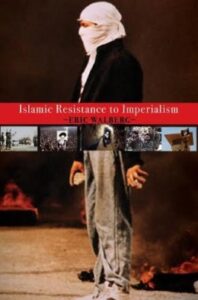 All Muslims will agree that the unity of the ummah is the first, most urgent, priority. The Shia, though outliers, strive for this even more, as they face hardline Sunnis who consider them apostates and would be happy to cut them loose or wipe them out. The official Sunni position has wavered over the centuries, but generally grudgingly accepts them. The imperialists of course were happy to use ‘divide and rule’, and they quickly turned a peaceful ummah into quarreling sectarians in India, Pakistan, Iraq, wherever they had the chance. This only really worked for post-Ottoman Iraq and Lebanon, both with large Shia communities mixed (peacefully) with Sunni. But the 20th century was one of increasing division, chaos, everywhere in the ummah. It is still on life support, held together now by the Shia thread, the ‘Shia crescent’, the only link the ummah has to Jerusalem and the Palestinians as they face annihilation, their Sunni brothers helpless or unwilling to save them.
All Muslims will agree that the unity of the ummah is the first, most urgent, priority. The Shia, though outliers, strive for this even more, as they face hardline Sunnis who consider them apostates and would be happy to cut them loose or wipe them out. The official Sunni position has wavered over the centuries, but generally grudgingly accepts them. The imperialists of course were happy to use ‘divide and rule’, and they quickly turned a peaceful ummah into quarreling sectarians in India, Pakistan, Iraq, wherever they had the chance. This only really worked for post-Ottoman Iraq and Lebanon, both with large Shia communities mixed (peacefully) with Sunni. But the 20th century was one of increasing division, chaos, everywhere in the ummah. It is still on life support, held together now by the Shia thread, the ‘Shia crescent’, the only link the ummah has to Jerusalem and the Palestinians as they face annihilation, their Sunni brothers helpless or unwilling to save them.
The British official who fashioned the new Iraq in the 1920s, Gertrude Bell, had no time for Shia, who were the majority then as now, but Gertrude had no time for democracy for the dark-skinned. I don’t for a moment doubt that the final authority must be in the hands of the Sunnis, in spite of their numerical inferiority; otherwise you will have a mujtahid-run, theocratic state, which is the very devil. She knew how the ulama in Iran had defeated the Shah on his westernizing mission, the famous tobacco fatwa of 1890 that forced the shah to cancel the British concession, and supported the constitution movement for democracy in 1905. The British had no interest in creating a radical Shia majority state and put in place a Sunni puppet king.
Iraq’s long and violent history since then finally undid Gertrude’s machiavellian scheming in 2003, bringing to an end a truly disgusting Sunni dictatorship, and the advent of the first Shia-majority state, the positive effects of which are still being discovered. We can thank the US imperialists (even a broken clock is right twice a day) for stumbling on a winning formula for Islam (and for themselves, for the world). By genuinely promoting electoral democracy (along with opening Iraq to foreign exploitation of Iraq’s oil), it started the ball rolling on Sunni-Shia relations everywhere, including US client number one, the Saudi dictator-king, with his truly downtrodden Shia, who sit on Saudi oil and get only repression, disenfranchisement and lots of beheadings as thanks.
The 20th century path that brought us to our present apocalyptic scenario was long and tragic. The Ottoman ‘sick man of Europe’ collapse at the end of WWI, invaded by the British and French (their Russian allies had already collapsed leaving more spoils for the victors). The end of the caliphate? For atheist Turkish dictator Mustafa Kemal that would have been fine. The Muslim ummah, both Sunni and Shia, anticipated this and had already rallied in its defense with the Khilafa Movement in 1919-1920, supported by other anti-imperialists, including Gandhi and India’s Hindus, who saw the British divide-and-rule as the poison that kept Indians subjugated.
Kemal got his way in 1924, accusing Indian Muslim leaders, who came all the way to Ankara to beg the Turkish strongman to maintain the caliphate, of foreign election interference. As if the caliphate was a Turkish plaything The shock wave reverberated around the world culminating in the World Islamic Congress in Jerusalem in 1931 at the behest of Mohammad Amin al-Husayni, the Grand Mufti of Jerusalem, bringing together Muslim leaders from around the world. A truly historic moment in the history of the ummah. But the caliphate was already a pipe dream, with growing Jewish immigration to British Palestine, the intent being to create a Jewish state, an imperial outpost to control the Middle East.
Everywhere, the Muslim world was occupied now by nominally Christian world empires, British, American, French, Dutch, the House of War (vs the ummah, the House of Peace), the the financial strings predominantly in Jewish hands, accounting for the plum Palestine being selected as a future Jewish state, purchased by the elite Jews who financed the British empire. Except for Shia Iran, which was never fully occupied and given an imperial make-over. But Iran also had its atheist modernizer, Reza Shah, who, having tricked the ulama into giving him their blessing initially, left them alone though marginalized. Though he weakened the religious establishment, outlawed the veil, and built industry and infrastructure, he was not so fanatically anti-Muslim He was anti-imperialist, and when WWII broke out, he was deposed by the British to prevent the shah from sending oil to the Germans. That occupation wrankled, and all the foreign devils, British, Russia, American were given the boot when the war ended.
It was the Shia ulama of Iran who were the only ulama to resist imperialism, supporting the first genuinely independent prime minister, Mossadeq, in 1951 in his effort to kick the British out and take control of the economy. The normally quietist, conservative religious elite had been radicalized despite themselves. When the US moved in to foment a coup in 1953, the invaders were able to get a few religious leaders to bless their scheming, but this blatant imperialist act galvanized all Iranians, and eventually led to the overthrow of the second and last Pahlavi shah in 1979. Newly religious Iran was joined by newly religious Turkey with the coming to power of Recep Erdogan in 2000, who refers to his followers as ‘grandchildren of the Ottomans’. Traditional Sunni-Shia rivals, Turkey and Iran are far from bosom buddies, but the current crisis of the ummah means that differences are put aside.
The second stumbling block for Muslims was the secular reaction to imperialism, Arab nationalism, now competing with Turkish and Persian nationalisms, fashioned as secular identities, undermining a united Islamic identity, central to the ummah. Egypt’s Nasser and Iraq’s Saddam Hussein are the two most notorious nationalist leaders, who led their countries in a death spiral of violent repression of Islam, corruption and failed military ventures.
Nationalism was foreign to Muslims, never the defining ideology, and these nationalist movements failed, with chauvinistic Sunni radicals morphing into violent pseudo-Islamic movements – al-Qaeda, ISIS and Islamic State–Khorasan Province.
With the current US-Israeli genocide of Palestinians, the ummah is coming together again, realizing this is the make-or-break moment for Islam, and that these nationalisms are evaporating in the heat of crisis. Even the perfidious MBS casually announced that there would be no Israeli-Saudi new order until the Palestinians have a real state. The ice is cracking, moving, as Palestine’s spring takes shape out of the Israelis’ ashes and rubble.
Turkey and Iran had secular capitalism imposed from the top to keep the imperialists at bay. Egypt had a brutal British occupation until the 1950s, creating the same secular capitalism as Turkey and Iran, but then came socialistic dictator Nasser in 1951, injecting a new political element. Sadly, he too refused to acknowledge Islam as the bedrock of society, a more genuinely socialistic way of life, his secular vision collapsing with Israeli invasion, leaving Egypt, the largest Middle East country, far weaker now than either of its two Middle East rivals. The Arab states have all remained puppets of imperialism and remain cool to, even resentful of the new Shia vitality and presence. But the Arab masses support the Shia defiance of US-Israel, despising their Quisling leaders.
Puppets and fledging actors
Iran’s revolution in 1979 was bad news for the Saudis, leading to even greater repression of its Shia. Saudi suspicions and fear of Shia have been a terrible ordeal for the 10% of Saudis who are Shia, and a powerful Shia state would naturally push for justice. So instead of making peace with their Shia (and thus, with the new Iran), in the 1980s, Saudi Arabia (and Kuwait) spent $25b (i.e., gave US weapons producers $25b) in support of the brutal, mad thug, Saddam Hussein in the Iran–Iraq War (1980–1988). When Saddam invaded Kuwait, cashing his US-Saudi IOU for sacrificing half million Iraqi Sunnis-Shia to kill a half million Shia Iranians, Saudi Arabia was unhappy. Not only had Saddam failed to crush Shia Iran, his defeat would mean an angry Shia state next door, which could easily invade and overthrow him.
So King Fahd invited the US forces into the kingdom to invade Iraq and keep the Saudi kingdom as head honcho of the Muslim world. I repeat: King Fahd allowed American and coalition troops to be stationed in Saudi Arabia. Saudi Arabian forces were involved both in bombing raids on Iraq and in the land invasion that helped to ‘liberate’ Kuwait, the so-called Gulf War (1990-1991). The ummah, the House of Peace, invaded and occupied by the House of War. MBS’s current free and easy secularism makes sense after all, but not for the ummah.
Why would the US have gone to all the trouble to invade Iraq as part of ‘liberating’ Kuwait, and then leave the (truly odious) dictator Saddam in power? Ask weakling King Fahd, whose fear of a Shia-majority Iraq next door was even greater than his fear of a cowed, murderous Saddam. Pan-Arab nationalism – RIP.
This enduring Sunni-Shia stand-off is the imperialists’ trump card. All the Arab countries are in varying degrees still US puppets, and persecute their Shia because they, the so-called rulers, are weak and fear the implicit critique of their weakness that the morally uncompromised Shia represent. Nigeria, Bahrain, Indonesia, Malaysia have all driven wedges between Sunnis and Shias when it was politically useful. The Sunni masses, looking for a way out of the imperialist straitjacket but educated to despise Shia, looked not to solidarity with all Muslims to fight the looming imperial enemy, but inward to past Sunni experience, the early four Rightly Guided Caliphs, for their inspiration. They downplay the fact that the finally one was Ali, the inspiration of the Shia as sole legitimate caliph of the whole lot. In the 1980s-1990s, frustrated Sunnis coalesced around radical Saudi Bin Laden and his al-Qaeda, various ISIS caliphate dreamers in central Asia, the Caucasus, Africa, internationally, with an unIslamic jihad condoning mass civilian deaths as a key tactic.
This element continues to plague the Sunni world, the whole world. It has undermined the efforts to rebuild Iraq after the 2003 invasion. The Ba’thists were outlawed, leaving the minority Sunni with nothing, so they preferred chaos and road bombs, but Shia long-suffering patience grudgingly brought together ‘good’ Sunni and all the Shia to fight the latest (Sunni) terrorists, ISIS et al.
10/7 was an earthquake, not just for Israel but for Islam, the Sunni-Shia tremors finally syncing on that explosive day, pushing the Sunni establishment into Shia arms. All people of goodwill now rout for the Shia Hezbollah in their battle with Israel to protect the heart and soul of Islam. Paradoxically, this challenge was anticipated by the renewal of relations between the Saudis and Iran in March 2023, anticipating 10/7, an admission that Shia power could not be ignored in the new world order taking shape under China and Russia, quite apart from the central role Iran was now playing in protecting the Palestinians from total annihilation, with the Saudis watching with alarm from the sidelines as their position at the head of the Muslim world was being usurped by events on the ground, including from its own despised 10% Shia, now demanding the same rights as citizens that the Sunnis have.
Democracy really is the answer
It’s finally clear: Arab nationalism has been a flop, as has been Pakistan nationalism, where the 20% Shia must constantly fight Sunni chauvinists. Indian nationalism is worse, following the path of Israel, a racist Zionized Hindutva ideology that exclused all Muslims, Sunni or Shia. Sunni chauvinism under imperialism, taking refuge in nationalism, always undermines the ummah, unless the Shia are a sizable minority or majority, and the government is sufficiently representative. I.e., democratic.
In hindsight, I would argue the road to the liberation of Jerusalem began with Iran’s revoluton in 1979, which put Palestine liberation at the top of its international agenda. The war launched by Iraq was supposed to steamroll through a weakened Iran, as ordered by Saddam’s backers Saudi Arabia, the Soviet Union, the US and Europe. (What a cynical, bizarre coalition!) Ayatollah Khomeini was brilliant and charismatic, but a poor politician, refusing to end the war when Saddam offered, hoping to liberate Iraq, leading to 100,000s more deaths and seriously weakening and tarnishing the revolution. His hubris was immortalized in telling anecdotes. My favorite: Pakistani dictator Zia had urged the shah in 1977 to crack down even harder on the rebels. When Zia met Khomeini as the shah’s successor a few years later, Khomeini merely asked politely for Zulfikar Bhutto’s life (Zia was Bhutto’s successor) to be spared. No dice. On the contrary, Zia advised Khomeini not to tangle with a superpower. Khomeini retorted he would never do such a thing and in fact always relied in the superpower. Ouch! That only made Zia persecute his Shia even more.
Arab secular states can’t unite when they are headed by dictators like Assad, Nasser, the Jordanian and Saudi king-dictators. Corrupt dictatorships don’t make good allies. The need for democracy is obvious. Iraq hopefully can be the model for Sunni and Shia learning to work together again under a robust electoral democracy. Sunni and Shia lived more or less till Saddam and sons really began their madness.
The end of Saddam moved the Shia-Sunni ‘battle lines’ 200 miles west, now running through Baghdad, which was precisely what Gertrude Bell, Saddam and the imperialists had all tried to prevent. History takes its revenge. The chauvinistic Sunni hegemony of the Muslim world is finished. The Sunni hegemons tried to overthrow Khomeini and failed. The same battle took place 12 years later in Iraq and failed again due to Shia patience in the face of Sunni-inspired terror. Thousands of Saudi and Jordanian youth went to Iraq after 2003 to fight the occupation (and looming Shia hegemony) and die, just like they did in their misguided jihad in Afghanistan in the 1980s. Their violent self-sacrifice only digging the Sunni world deeper into a state of humiliation. 85% of ISIS in Syria working alongside the US imperialists are Saudi. They are there solely to fight the ‘sons of al-Alqami’, referring to the Shia vizier when the Mongols razed Baghdad in 1258.
Now the Sunni are exposed as helpless in the face of Israeli genocide of the Palestinians, are actually helping ‘protect’ US-Israel from Iranian bombs intended for Israel. The Sunni world is humiliated, betraying Islam, kowtowing to not just the US but US-Israel. To defeat (Sunni-inspired) ISIS, the ‘good’ Iraqi Sunnis even had to welcome help from not just Iraq Shias (the army) but also Iran. It is high time to bury the hatchet of envy and suspicion, and join the Shia, if only because they hold the fate of the ummah in their hands.
The ‘bad’ Sunnis (regime elites) are still supporting the US-led war on terror. Their goal is still to wreck the new, Shia-led Iraqi state and keeping the lid on their own pressure-cookers, looking over their shoulders at the (failed) Arab Spring of 2011. The Sunni elites do US-Israel’s work for it. At the same time, they are angry with the US for complicity in Shia revival, undermining House of Saud, contributing to the decline in its religious legitimacy. MBS’s secular turn is more a parody of soft power, which only undermines (Sunni) Islam. The Saudi treatment of its own Shia mirrors Israeli treatment of Palestinians. Sadly, it is only because Palestinians have some shred of legal independence as part of the post-WWII internationally agreed policy of decolonization that this instance of apartheid is being fought openly. Anti-Muslim apartheid is actually alive and well but hidden behind national borders (China, Myanmar).
What remains of the insurgency in Iraq today is an alliance of Jordanians, Saudis and Iraqi Ba’thists. Syria and Saudi are both ripe for change, with Iraq and Iran as their models, but especially Iraq, with its more open, competitive elections and its large Shia population. The main legacy of the Iraq invasion was to make the Shia case, which means fighting Sunni extremism and terrorism, exposing the US Global War on Terror (GWOT) as a fraud (produced more (Sunni) terror), cementing Shiism as the adult in the room, holding the Islamic faith secure by a string, open to democracy.
21st century the Shia century?
This is already happening. Islamic Iran from the start allied with all anti-imperialist countries. Its revolution echoes the idealism of the Russia revolution of 1917, both of which were met by invasions by western powers and/or proxies, and both succeeding against all odds, based very much on ideological zeal for the good of mankind. Both also became authoritarian states, with elections but with limited choice. Iran’s elections are much more credible, and the election of reformers like Khatami and now Pezeshkian show there is room for real public debate. As with all countries victim to US ire, survival trumps all finer nuances, which are put on hold. Show me who your friends are, and I’ll tell you who you are. Iran’s allies are the anti-imperialist good guys.
In contrast to the Arab states, with their muddled Islamo-nationalisms, which have failed to fashion a Sunni identity independent of imperialism, and which still exclude Shia. A shame that Shia find better allies on the secular left, with largely common political, economic and cultural goals, above all peace. Like the Jews at the heart of Bolshevism, Iraq’s Communist Party was full of Shia intellectuals (e.g., poet Muzaffar al-Nawwab). The Iraqi town Shatra in the Shia south was nicknamed Little Moscow. The Shia have a natural affinity for the secular left, supporting the underdog. The Iraqi Communist Party was reorganized after the Iraq war and its leader Hamid Majid Musa was part of the governing body the US set up. The communists wanted peace as do all communists, Islamic Iran and Iraq want peace (salam) more than anything. Neither the communists nor the ummah were/are aggressive, expansionist. Both offer(ed) a way of life that doesn’t have war built in as its engine. The communist alternative was social/state ownership and planning. The Islamic alternative is a mix of state direction/ownership and limited capitalism. There are no billionaires who aren’t emigres already. That kind of money lust is alien to a devout society or a communist one.
Iran and Hezbollah are suffering Israel’s truly Satanic war crimes alongside their Palestinian brothers. Meanwhile the Gulf and Saudi sheikh-dictators, the Egyptian no-pretense-dictator, the Jordanian British-installed-king sit on the sidelines cursing the Palestinians for disturbing their sleep. They actually come to Israel’s aid – Egypt and Jordan are official allies of Israel – when Iran tries to hurt poor little Israel, as they already did in April 2024. The US is well aware that the Jordanian and Egyptian masses are very unhappy, but it relies on its local puppet dictators to keep the lid on the pressure-cooker, and is very cautious about exporting one-man-one-vote after its painful and expensive experiences in Afghanistan and Iraq, the former once again Taliban, the latter in league with Iran against the Great Satan, which just happens to include itself, US-Israel. So don’t hold your breath for US pressure to make its dictators relinquish power. 2011 was a close call, not to be repeated.
As for the Palestinians, they were completely left out of the negotiations about their future following the 1973 Egypt-Israel war. Sold out by (atheist, Sunni) Sadat with an empty promise. The past half century has been unremitting hell for the Palestinians, who were kicked out of Jordan in the 1970s, many ending up in southern Lebanon, living with the Shia there. This is the origins of Musa al-Sadr’s Amal and after his assassination, Hezbollah. This happened during Israel’s invasion of Lebanon in 1982, forging of a new force to confront Israel, which was given a huge boost with the Islamic revolution in Iran. Suddenly there was a ‘Shia crescent’, a genuine quasi-state opposition to Israel that functioned outside the imperial constraints.
Musa al-Sadr represented the best of the Shia tradition, an activist cleric engaged in the life of his community, unafraid to speak truth to power. He earned a law degree from (shah-era) Tehran university. His Amal militia ran social services and acted as a political organization, a challenge to the fiction of pan-Arab unity and the unyielding reality of Sunni hegemony. Iran’s IRGC was organized by veterans of Amal training camps. Amal represented a political threat to the Arab and Palestinian establishment, and his assassination by Gaddafi was clearly a Sunni move to quash a Shia upstart. But he (and Israel’s brutal occupation of Lebanon in the 1980s) inspired the formation Hezbollah, which killed 654 Israeli soldiers in a few years and pushed a humiliated Israel out of Lebanon in 1985.
‘Good’ Sunnism is reviving but more in the emigre communities, largely in the US/Canada, Europe, Australia/ New Zealand, where there are now communities of mainstream Sunni and Shia as well as sects (Ismaili, Yazidi, Ahmadiya, Bahai’s). This young, well educated, assertive diaspora radically challenges the Sunnia world, as a new generation of Muslims takes electoral democracy for granted, and were able to gain equal rights as citizens in the ‘House of War’, which meant fight for Palestine against Israel. Effectively the need for young, educated workers to fuel its capitalist machine ended up importing the ‘enemy’ to the heart of imperialism. As these mostly Sunni Muslims spread their message of ‘goodwill to all men’, colonized, persecuted Palestine has gradually gained the edge over colonizer, persecutor Israel. They are joined by a growing community of converts, as people find out about Islam from friendly, law-abiding neighbors. Islam is the fastest growing religion everywhere.
The Shia are Islam’s ‘wandering Jews’ but without the usury, so they have a presence on all continents, mostly persecuted (or just ignored) by Sunni majorities (but not everywhere). The Sunni too are like the Jews with their world network, a persecuted minority (but not everywhere). In fact, Sunni emigres are free to criticize Israel and their own native Muslim-majority countries in the West, where, say, in Egypt or Pakistan that could land them in jail or worse. As with the Jews, the spread of both Sunni and Shia presence virtually everywhere creates a powerful network for mutual support, to ensure both Shia and Sunni, emigre and domestic, are vital parts of the ummah, all devoted to defending Palestine and liberating Jerusalem. A kind of benign Judaism. Democracy brings power to Shia majorities and give voice to minorities, resisting Sunni terrorists. The goal remains the liberation of Jerusalem, but the center of gravity has shifted from Saudi Arabia, Egypt to Iran and Iraq, now stretching from Lebanon and Syria along the Shia axis of resistance.
The US allies with the pragmatic Sunni dictators, hates, targets Shia, but they are the best defense against real terrorists (Saudi/ Jordanian ‘jihadists’, ISIS, US-Israel). Standing up to tyranny is never popular with tyrants. By overthrowing Saddam, the US unwittingly paved the way for the Shia revival. Ayatollah Sistani brilliantly used the opening to guarantee democratic Shia hegemony in Iraq as a model for a renewed Iran, Syria, Lebanon, Palestine, Saudi Arabia, Bahrain, in short, the Muslim ummah. The Iraqi Shia proved that it is possible to work with the US and not compromise. Sistani refused to meet with US officials: Mr Bremer, you are American I am Iranian. Leave it up to the Iraqis to devise their constitution. He challenged US plans to hand power to Allawi, Chalabi. Insisted on one-person, one-vote. When the US refused, he called for large demos over five consecutive days until the US relented.
Iraqi Shia abandoned the Iraqi nationalism of Saddam. The renewed nationalism is firmly nonsectarian, uniting the ummah. This is a powerful message to the other Arab states. It is fitting that Palestine has brought the Sunni to the Shia-led defense of Jerusalem. Israel can be defeated only by a united ummah which acts wisely, with restraint, indefatigable. It is also a message to Israel and the Palestinians about inventing a new nationalism based on peace and reconciliation.
ENDNOTES:
